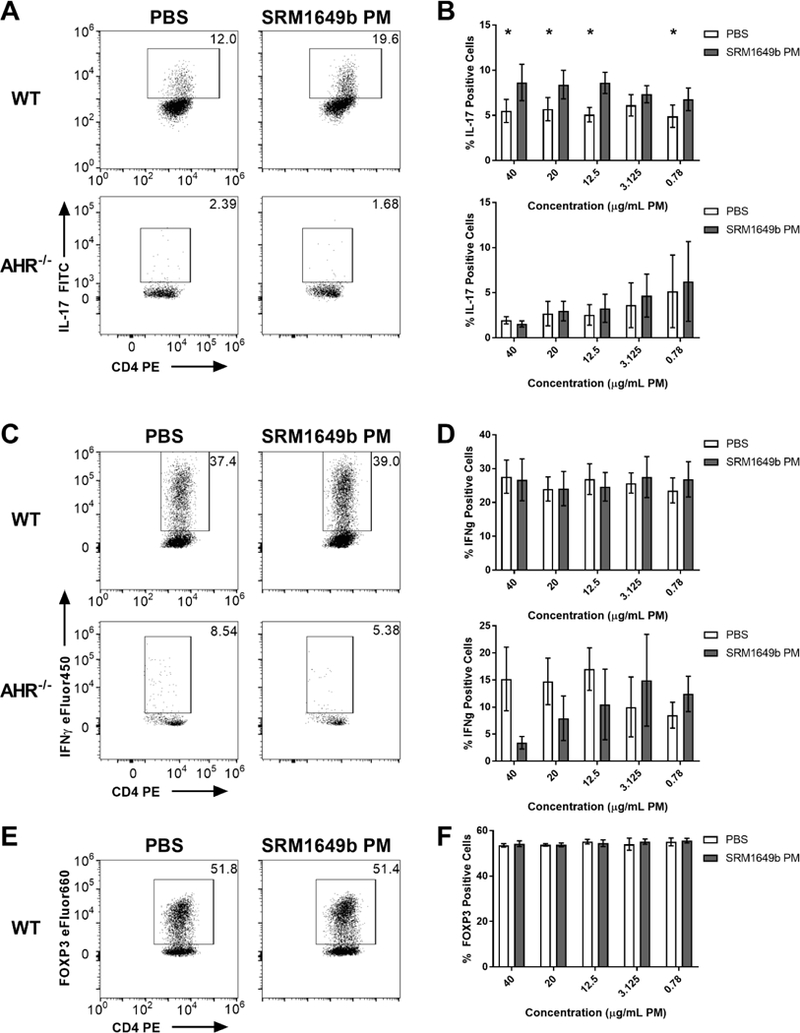Figure 1: SRM1649b PM enhances Th17 differentiation in an AHR-dependent manner and has no effect on Th1 or Treg differentiation in vitro.

Naive CD4+ T cells were isolated from WT (C57BL/6J) or Ahr−/− mice. At time 0 cells were exposed to 5 concentrations of SRM1649b PM or PBS control and cultured for 3 days. (A) Representative flow plots of WT (top) and Ahr−/− (bottom) Th17 differentiation at 400μg/mL PM, measured by percent IL-17 positive cells. (B) SRM1649b PM enhanced WT Th17 differentiation at all concentrations except 3.125ug/mL PM compared to PBS control (top). In Ahr−/− cells, SRM1649b PM had no effect on percent IL-17 positive cells (bottom). (C) Representative flow plots of WT (top) and Ahr−/− (bottom) Th1 differentiation at 400μg/mL PM, measured by percent IFNγ positive cells. (D) SRM1649b PM had no effect on Th1 differentiation at any concentrations tested (top). In Ahr−/− cells, SRM1649b PM suppressed Th1 differentiation at 40, 20, and 12.5μg/mL PM (bottom). (E) Representative flow plots of WT Treg differentiation at 40.0μg/mL PM, measured by percent FOXP3 positive cells. (F) SRM1649b PM had no effect on Treg differentiation in WT cells. Results are mean ± SEM of (WT Th17 n=8), (Ahr−/− Th17 n=5), (WT Th1 n=5), (Ahr−/− Th1 n=2), and (WT Treg n=2). Significant differences among groups (p<0.05) are indicated by an asterisk. Abbreviations: AHR, aryl hydrocarbon receptor; SRM, standard reference materials; PM, particulate matter; SEM, standard error of the mean.
